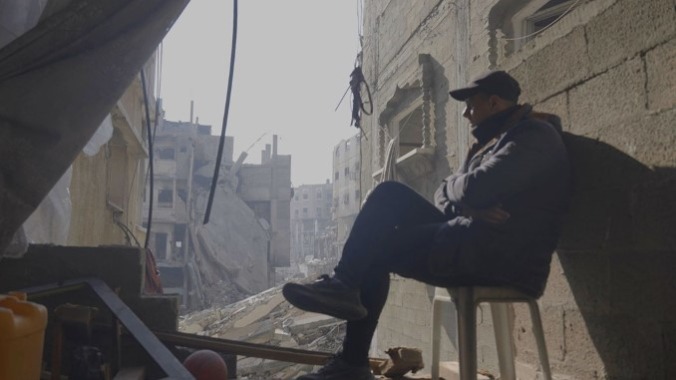In From Ground Zero, 22 Palestinian Filmmakers Tell Stories of Life and Death in Gaza

In From Ground Zero, an anthology of 22 short films made by filmmakers living through war in present-day Gaza, death and destruction are everywhere — in days and nights filled with the terrifying sounds of bombardment; in heaps of concrete and twisted rebar that once housed families and businesses; in the prayers of those kneeling beside loved ones in rows of body bags lining the streets.
Now entering its fifteenth month, Israel’s genocidal assault on Gaza has officially killed more than 45,000 Palestinians, 60% of whom are children, women, and older people; the suffering is unimaginable and unrelenting. It is a horror that defies explanation, a grief that words cannot grasp, and one the people of Gaza continue to endure without justice, as the latest escalation in a litany of evils perpetrated by Israel against Palestinians for decades.
-

-

-

-

-

-

-

-

-

-

-

-

-

-

-

-

-

-

-

-

-

-

-

-

-

-

-

-

-

-

-

-

-

-

-

-

-

-

-

-








































